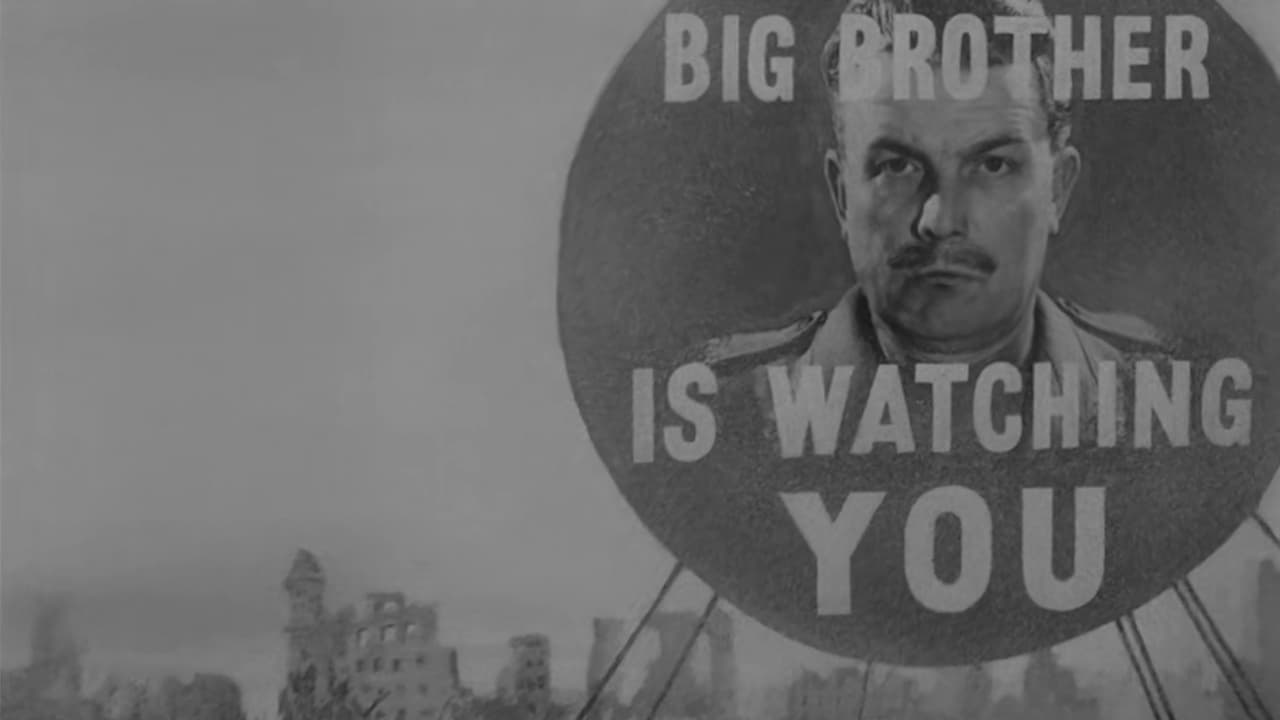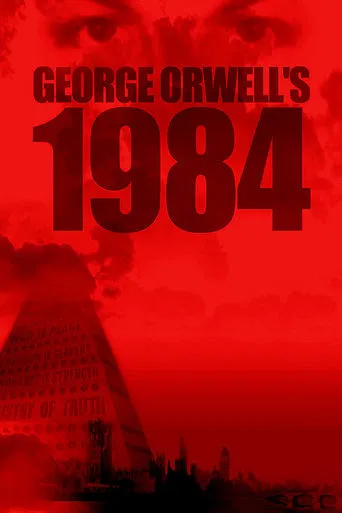GrimPrecise
I'll tell you why so serious
Helloturia
I have absolutely never seen anything like this movie before. You have to see this movie.
Edwin
The storyline feels a little thin and moth-eaten in parts but this sequel is plenty of fun.
Billy Ollie
Through painfully honest and emotional moments, the movie becomes irresistibly relatable
MartinHafer
This is the fourth and probably the best version of "1984" that I have seen. There's a decent version with Edmund O'Brien that is hard to find, one made for TV ("Studio One") and the more recent version with Richard Harris and John Hurt but for me, this made for TV British version is best for three main reasons. First, Peter Cushing was a dandy actor and did a fine job. Second, the book was set in London and the British accents made it work better than the American versions. Third, despite the very, very small budget, the cheap sets worked just fine--as they were able to provide an appropriate level of greyness for the story. A bigger budget really couldn't have helped in this way. Overall, it's well worth seeing and is available for free download at archive.org--a website frequently linked to IMDb.
wnstn_hmltn
Teaming the ultimate speculative-fiction scenarist (Nigel Kneale) with two of the most monumental actors to have ever had a command of the Queen's English (Peter Cushing and Andre Morell) has resulted in a dynamic trio striking this unflinching rendition of the Orwell classic with sparks aplenty. Later to become living legends over at Hammer Films (particularly Cushing), it was this momentous pairing of Morell and Cushing that led the Hammer powers-that-be to reunite them seven years later in the truly remarkable "Cash on Demand" (see my review). The lovely, inscrutable Yvonne Mitchell acquits herself well as Cushing's forbidden love interest, and the atmosphere of foreboding and dread is so thick you could cut it. Last but not least, watching Kneale apply his inimitable touch to Orwell's concepts is a tremendously exciting foretaste of the wholly original yarns he would later spin ("Quatermass," etc. ) A superlative production all the way around.....don't miss it!
Prof_Lostiswitz
This version seems to be at least as good as the Burton one from the 1980's, which was made at much greater expense. TV movies have the room to be experimental, when they want to be. The cheap sets and black-and-white photography actually contribute to the effect, although the countryside scenes of course suffer. The actors deliver their lines with conviction, natural enough since they were closer in time to Orwell, Stalin, McCarthy and the rest.One problem is that some of the best lines are delivered far too quickly, presumably because this was a live-on-air performance. Julia's final lines should be muttered in a halting voice, not rattled off as here.The ratings of the various versions are 1. 1954 (Cushing) 2. 1984 (Burton) 3.1956 (which was suppressed by Orwell's estate, it was so bad). Brazil (1985) is better than any of these, because it was designed for cinema; and Orwell's novel is better than all of them.
lordwoodbine
This is quite the best version of this over-rated fable due in great part to Peter Cushing's subtle and moving reading of Winston Smith. He was an actor of only a very few identities but he was very good at 'playing the text' which means that even the most fantastic tale is utterly believable and gripping.Save for a few filmed inserts, this is a live performance and that also adds something quite magical to the piece. For once the story becomes a compelling adventure rather than the clumsy and misdirected polemic that it is sometimes staged as.Subsequent versions have been grounded too much in designer's desire to create a 'nightmare world' in which the action takes place. In the 1980s version the impact of the 'message' is lessened by unconvincing filth and modish gloom. Here the barren sets and simple costumes leave more space for the action.A little confusion may arise because Wilfred Bramble appears in two parts but in general, as was often was the case at the BBC, the low budget actually adds to the thing.

